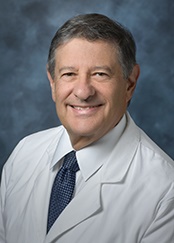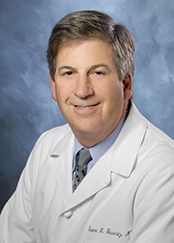Noticing a scarcity of biotech and digital health startups in the Los Angeles area, Cedars-Sinai decided to play an impactful role in bringing these healthcare innovations to life.
Envisioning an accelerator where Cedars-Sinai could nurture and help these tech startups succeed, the health system sought out a partner in Techstars. The firm boasts an impeccable track record, with 90 percent of its startups surviving after two years.
Cedars-Sinai entered a five-year exclusive agreement with Techstars, to create an accelerator for health tech startups.
The program's call for applications received pitches from more than 500 companies from all around the world, presenting ideas for patient engagement tools, big data analytics and service delivery redesigns, to name a few.
Cedars-Sinai leaders focused on three core selection criteria.
- Science: With renowned in-house expertise, the selection committee called on their Cedars-Sinai colleagues to conduct peer-reviews of the science behind the proposed projects. In certain circumstances, the committee called on outside expert review.
- Value and mission: The committee sought companies and products that possessed a synergy with Cedars-Sinai values and mission, encompassing integrated patient care delivery, academic discovery, teaching and community service.
- People: The Cedars-Sinai took a close look at how the management team came across as individuals.
"We had another nuance of assessment, an understanding of all of us in the room. Will this successful product enhance the value of healthcare, both in terms of quality and in terms of cost? We are very sensitive to enhancing value, especially because of the new reimbursement environment," explains Shlomo Melmed, MD, a member of the selection committee. An endocrinologist, Dr. Melmed serves as Cedars-Sinai's executive vice president of academic affairs; dean of the medical faculty; and the Helene A. and Philip E. Hixon Distinguished Chair in Investigative Medicine.
After lengthy discussions and "individual subjective enthusiasm" pushing for certain companies, Cedars-Sinai selected 11 startups to join the inaugural Techstars Healthcare Accelerator.
The participating companies included:
- Applied VR
- HomeHero
- Stasis Labs
- Ella
- Grace
- Deep 6 Analytics
- Silversheet
- Inscope Medical
- WELL Health
- ZendyHealth
- Yosko
The program's nuts and bolts
The 13-week accelerator took place in a two-level freestanding facility, located on the Cedars-Sinai campus.
The innovators could access the building at any time day or night, utilizing the tables, benches and conference spaces inside. The "innovation space" design offered a place to engage but also to relax.
Omkar Kulkarni serves as director of the accelator. Although Cedars-Sinai faculty contributed greatly to the program, many other Los Angeles area business and biotechnology professionals offered their time as mentors.
Each of this year's 11 participating companies received $120,000 of financial backing.
At the program's end, the participating startups showcased their work at a demonstration day. About 500 investors attended this year's demonstration day in Beverly Hills, which exposed the startups to a broad range of potential funding options. Cedars-Sinai also may decide to offer additional funding to exceptional companies.
"Even more important, was the rapid assessment of their marketing, business and giving them the chance to focus the development of their company in a direction that was likely to be successful," says Bruce Gewertz, MD, another member of the selection committee. A vascular surgeon, Dr. Gewertz serves as Cedars-Sinai's department of surgery chair; H & S Nichols Distinguished Chair in Surgery; surgeon-in-chief; vice dean of academic affairs; and vice president of interventional services.
And Cedars-Sinai doesn't plan to forget the companies with the conclusion of the inaugural program. The medical center will keep close contacts with the companies and offer continued support.
"We have a very vested stake in their success," says Dr. Melmed.
Drivers of the inaugural class' success
Dr. Gewertz's notes the companies' leadership possessed high levels of enthusiasm and drive.
"There was never a time in the innovation space in which there wasn't activity going on and people were voluntarily spending their time engaging with these ideas and people," Dr. Gewertz adds.
A remarkable amount of Cedars-Sinai faulty and administrators offered their services, as well, with participation that "exceeded our expectations," adds Dr. Gewertz.
Dr. Melmed agrees, noting the internal pride of the Cedars-Sinai faculty and staff. The startup participants were "met with engagement, positivity and enthusiasm." He owes that to the medical's centers size, offering a powerhouse of intellect without losing individuality.
The makers of the 2017 class
Cedars-Sinai hopes the inaugural class will guide their selections of the 2017 class. They plan a similar sized program in the low teens at most, so the intimacy continues.
"There is a lot of hand-holding and a lot of one-on-one meetings," explains Dr. Melmed.
A vast number of health companies are interested in the program, and Dr. Gewertz believes the accelerator offers a distinctive model that engages a wide variety of experts.
"We're very open-minded, influenced strongly by the value equation and the understanding of the personal characteristics of the people who are leading," Dr. Gewertz adds.
Because they turned away a great number of companies last year, Dr. Melmed anticipates a good number of re-appliers.
As a private, non-profit academic medical center, Dr. Melmed believes Cedars-Sinai to offer a unique environment.
"Our academic organizational structure is very fluid, with interaction and dialogue and the ability to bring people together quickly is one our characteristics," says Dr. Melmed. "The companies felt this."
The next round of the Techstars Healthcare Accelerator in partnership with Cedars-Sinai will commence in January 2017.
Pictured: Dr. Shlomo Melmed and Dr. Bruce Gewertz




